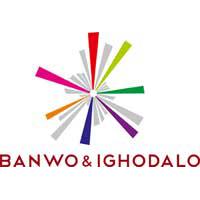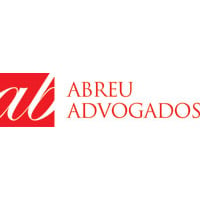

Partner | Cleary Gottlieb Steen & Hamilton






Barthélemy Faye
Partner | Cleary Gottlieb Steen & Hamilton
Number of years practice: 20
Principal practice areas: Private equity, international projects
and financings, sovereign debt
Languages spoken: French, English and Wolof-Senegal
What is the geographical focus of your practice in Africa?
Pan-African practice, with a focus on North and Francophone Africa, West Africa and Central Africa.
Please describe the most important matters you have worked on in the African market in the last two years, including your role and the significance of the matter (if any) to the development of business and law.
I was the lead partner for our firm’s representation of the Government of Senegal and AIBD, as concessionaire, in connection with the US$500m project financing, construction and operating arrangements for the new Dakar international airport, Blaise Diagne. The airport was commissioned in December 2017 and has provided Senegal with a first-rate platform for its ambition to become a hub for air transportation in West Africa. This project was the first major project financing in Senegal, and paved the way for a series of infrastructure projects in the country, including the first highway concession with Eiffage.
I was also lead partner for our firm’s representation of the Government of the Republic of Chad and state-owned oil company Société des Hydrocarbures du Tchad (SHT), alongside Rothschild & Co. as financial adviser, on the restructuring of a US$1.3bn oil-for-cash facility agreement with Glencore. The restructuring was completed in August 2018. Thanks to our assistance, our client managed to obtain very significant debt relief in the form of extension of maturities, reduction of interest rates, exclusion of a portion of the country’s oil production from the scope of the Glencore prepayment and more. More specifically, our client succeeded in reducing its external debt indebtedness to a sustainable level, thus allowing the confirmation of the IMF economic program for the country.
I also led our firm’s representation of private equity firm Emerging Capital Partners (ECP) and Oragroup, a portfolio company controlled by ECP, in connection with the proposed listing of Oragroup (a regional commercial bank holding company) on the BRVM, the regional Abidjan-based stock exchange for Francophone West Africa, and the parallel sale of a controlling stake to a strategic investor. Oragroup intends to list 20% of its share capital with an expected value of about €90m, which will make it the largest IPO in this regional market. This transaction is the first dual-track IPO/M&A on the BRVM stock exchange, raising a number of challenging questions for which we will need to provide creative answers based on our experience with Euronext Paris transactions.
I also led our firm’s representation of the Government of Senegal and state-owned company PETROSEN in connection with an LNG project with a consortium led by BP and an oil project with a consortium led by Woodside, as well as in major Eurobond issues and associated debt liability management transactions by the States of Senegal and Ivory Coast in 2017 and 2018.
What differentiates your practice from that of other private practice lawyers?
My practice has a double focus on private clients and sovereign clients, as a trusted advisor of several African states, including Ivory Coast, Senegal, Benin, Chad, Madagascar and Congo, on matters pertaining to sovereign debt transactions and international projects.
In addition to advising international clients in natural resources projects in Africa, I am a leading lawyer on corporate M&A matters, a recognised expert on OHADA corporate law (having led the group of international consultants involved in the 2014 reform) and advise many private equity participants (both private equity firms and entrepreneurs).
Why has Africa been a particularly strong focus for you?
As a native of Senegal, I have been attracted to emerging markets transactions since the beginning of my career at Cleary Gottlieb. As a lawyer, I enjoy working in less conventional legal environments, like the Africa region, where doing deals is more challenging and, as a result, more rewarding. Above all, I enjoy contributing to the building of the new African market through his involvement in transactions that are critical to maintaining the economic transformation dynamics.
These are the reasons why I chose to join Cleary Gottlieb after graduating from law school. Cleary Gottlieb has over 45 years of experience in Africa, starting in the late 1960s. Since then, the firm has led a number of high-profile deals in over 30 African countries and some of Africa’s key industry growth sectors, particularly natural resources, financial services and telecommunications. In recognition of the firm’s experience on the continent, I was engaged by the World Bank and the OHADA Permanent Secretariat to lead the group of experts in charge of the reform and modernisation of OHADA corporate law.
What changes have you seen in the appetite for Africa-based ventures and investments over the last five years?
The greater use of public-private partnerships
and similar arrangements has helped many
countries develop and complete major projects
in the infrastructure sector and in the energy
sector.
The surge of private equity investment in Africa. Today, virtually all US private equity powerhouses have set up funds dedicated to investing in Africa. At the same time, many smaller independent Africa-dedicated funds continue to be launched. I have also been involved in the creation of purely regional private equity players promoted by local professionals and targeting local institutional investors.
Another notable feature is the growth and increased sophistication and complexity of the Eurobond market, in particular for sovereign issuers’ debt transactions. The African states that are able to access the capital markets are using a more proactive approach to debt liability management. An opportunistic use of guarantees provided by DFIs is also helping to attract new investors to the sovereign debt markets.
Are there any aspects of the African legal market that you would like to see change?
Local firms in most countries tend to be weak and need to raise the quality of their performance to meet the needs of increasingly sophisticated transactions and projects. This would allow for a more effective collaboration between international law firms and local firms on transactions that have a transformative effect on the local economies. This is a challenge that the international legal profession must address urgently. The increasing number of complex transactions in Africa, including in the area of corporate, M&A and capital markets, creates the need for greater legal security, which cannot be satisfactorily addressed through international law firms making legal arguments based on an analogy with French or English law. Fortunately, this has started to change, albeit slowly for now.
What megatrends do you think will shape the African market over the coming five years? How (if at all) will these trends affect your practice?
These include the growth of cross-border M&A activity within Africa, which is also fuelled by the private equity investment funds’ search for exit opportunities. [The] increasingly sophisticated capital markets practice, in the wake of the Eurobond debt capital markets; and the emergence of increasingly sophisticated local or regional law
firms.
The latter is a positive development that will force international law firms to position themselves in those areas where they can bring know-how and expertise that our clients cannot find locally at a better cost. This will also pose the strategic question of how international law firms involved in African transactions can continue to be relevant. Some international law firms have opened offices in Africa: the effectiveness of this move will be assessed as more law firms look into ways to grow their Africa practice.